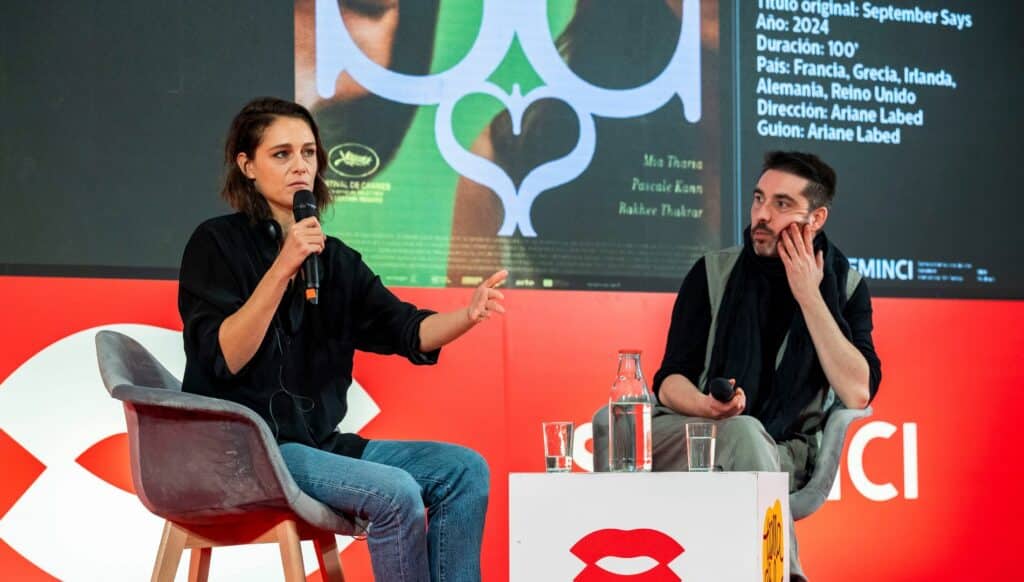- The actress, who starred in Alps and Lobster, directed by her husband Yorgos Lanthimos, makes her directorial debut with the adaptation of Daisy Johnson’s novel Sisters

Valladolid, 19 October 2024. Actress and director Ariane Labed has arrived in Valladolid on the second day of the 69th SEMINCI to present in the Official Section her first feature film, September Says, which explores the relationship between two sisters and their difficult transition to adulthood. Ariane Labed, a renowned actress of the new Greek cinema thanks to her participation in her husband Yorgos Lanthimos’ films Alps (2011) and Lobster (2015), has now turned her hand to directing by adapting the intimate novel Sisters, by Daisy Johnson.
Labed took on the challenge of translating the poetic style of Daisy Johnson’s writing into cinematic language, trying to put something of her own experience into it, after being absolutely fascinated by the characters in the book: ‘I am very interested in the complex relationship of these two sisters and the absence of the father; I wanted to analyse the theme of the family and its effects on adolescence, but I needed to make the film my own’.
The reason for undertaking the complex process of location scouting in Ireland to find the landscapes that appear in the novel was due, according to Ariane Labed, to its connection with witches‘ tales: ‘I needed a landscape that was linked to the gothic novel, especially because the main characters were women, I wanted to find a place that maintained a connection with a legendary past, with witches tales’.
September Says dives into the genre called coming of age, which refers to these years of adolescent uncertainty in which people begin to be themselves. ‘I think the attraction that we directors feel for this genre is that there is nothing written. You can’t define a character by saying they’re a lawyer or a painter, because they have their whole life ahead of them’.
The director has highlighted the effort to show behaviours and realities of women that are not usually represented in cinema: ‘On the one hand, the experience of bullying was something I needed to portray, and what I brought to the original story were these images that we are not used to seeing, and I think that showing this perspective of women is something political. Sexual learning has to be something more casual, less symbolically charged’.

The importance of her previous experience as an actress in directing
When immersing herself in the world portrayed in the film, that of the shared uncertainties of adolescence, the director spoke about the influence of her work as an actress in her new role as a director, where she defended her predilection for the physical and the corporal as a fundamental working tool with the actresses: ‘I was very interested in working on the gestural and the ritual in a certain way; this idea of playfulness in which girls take refuge as a method of communication and resistance in the face of a cruel world’. On the latter, she added: ‘I really like the structure of play that is present in childhood and adolescence. I think it is something very liberating, and we lose that sense of play when we reach adulthood. For me, it was very important to treat it that way, rather than doing a more psychological story. My method of acting is to have fun’.
Dance has been a fundamental aspect of her life as an actress, and she has declared: ‘Choreography is the main thing in my approach to filming, so I have taken great care of the spectator’s point of view. And to do that, the camera movement had to be very much in sync with the movement of the characters. I have problems with the hand-held camera, there are people who use it very well, but I don’t know how to shoot like that.’
Press contact:
983 42 64 60
prensa@seminci.com



























![Logo Foro Cultural de Austria Madrid[1]](https://www.seminci.com/wp-content/uploads/2024/09/Logo-Foro-Cultural-de-Austria-Madrid1-300x76.jpg)








